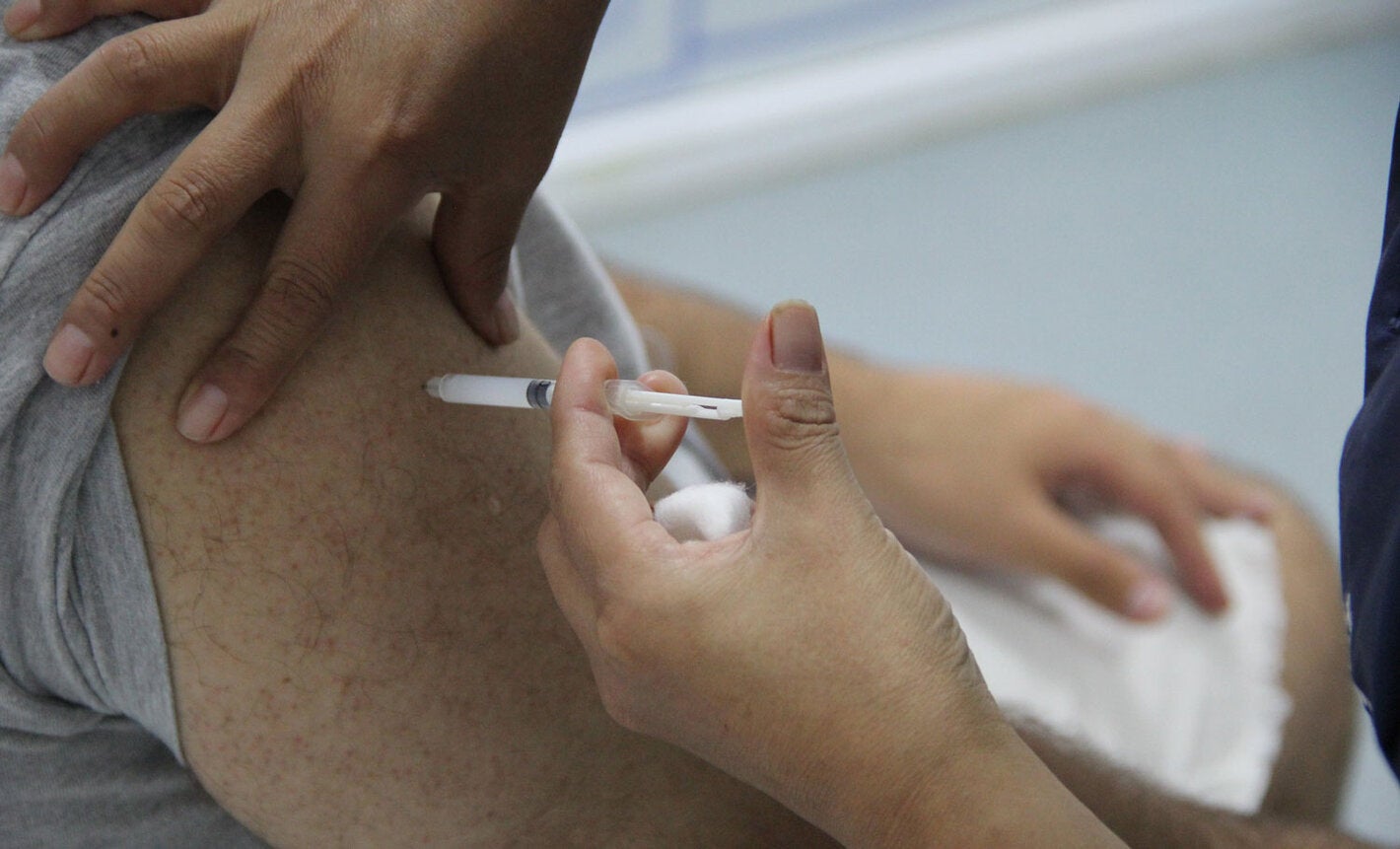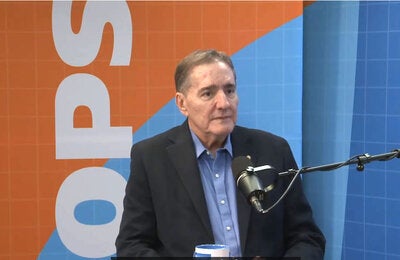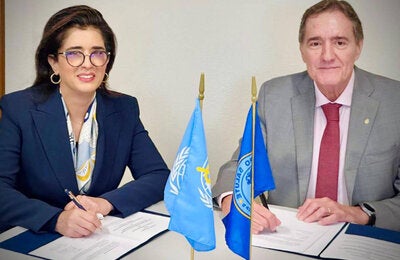
While many countries and territories in the region are on track to reach 70% coverage for COVID-19 vaccines, 21 have yet to reach half their populations.
Washington D.C., 16 March 2022 (PAHO) – As COVID-19 vaccination continues to expand in the Americas, countries must continue to focus on the protection of the most vulnerable, such as the elderly, the immunocompromised, health care workers and other high-risk groups, Pan American Health Organization Assistant Director Jarbas Barbosa said today.
“COVID-19 infections and deaths are declining in most of our region, but there are still too many cases and deaths being reported every day – a clear indication that transmission is not yet under control,” Dr. Barbosa said in a media briefing.
Since the virus arrived in the Americas two years ago, 149 million cases of COVID-19 have been reported and 2.6 million people have died.
The Assistant Director also warned that the current rise in cases in other regions of the world should serve as “a cautionary tale” for the Americas.
New infections have increased by 28.9% in the Western Pacific Region, 12.3% in the African region, and almost 2% in the European region.
“The virus puts us all at risk,” he added. “That’s why we must continue our efforts to close the equity gap and protect the most vulnerable with COVID-19 vaccines.”
Dr. Barbosa said that while many countries and territories are on track to reach the WHO 70% COVID-19 vaccination target, and eight have vaccinated more than 80% of their population, 21 have yet to vaccinate half of their population.
“We still have a lot of work ahead to improve our resilience to COVID-19,” he said.
Dr. Barbosa highlighted that pandemic response has left routine immunization programs decades behind – with coverage against polio and measles dropping to 1994 levels.
“COVID-19 showed us, once again, that vaccines are the most important tool to control infectious disease and save lives,” he said. “Yet in just two years, we’ve rolled back nearly three decades of progress on polio and measles.”
Vaccine coverage for other childhood diseases has also fallen further behind, with diphtheria and yellow fever threatening to resurge unless countries take urgent action, the Assistant Director warned.
HPV vaccination, which prevents cervical cancer in young women and girls, has also stalled across the region due to school disruptions.
While many countries restarted campaigns against measles, rubella, and polio in 2021, and at least eight countries are planning to do follow-up measles campaigns this year, sustaining high coverage is “essential to securing our children’s future and allowing our region to flourish,” he said.
The Assistant Director called for strong political and technical leadership at national and local levels to raise routine vaccination coverage and urged countries to leverage COVID-19 vaccination efforts to rapidly roll out other essential vaccines, including the influenza vaccine.
“We cannot waste time,” Dr Barbosa said. “We have the experience, tools, and know-how to catch up on missed vaccinations, prevent diseases, and protect our families today and in the future.”
PAHO “will work with countries across the Region to run coordinated national campaigns during Vaccination Week in the Americas,” and the PAHO Revolving Fund stands ready to “continue to support countries with purchases of routine vaccines,” he added.
Turning to the COVID-19 situation in the region, Dr Barbosa reported that cases in the Americas reached 901,000, a 19% decrease from the previous week. However, hikes in cases were seen in Caribbean and Atlantic Ocean Islands, where cases increased by 56.6%
Deaths fell by 18.4% to 15,523, with all subregions reporting declines – from a 6.9% drop in the Caribbean to a 27.9% decrease in Central America.



